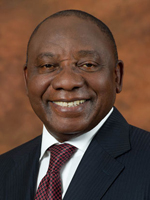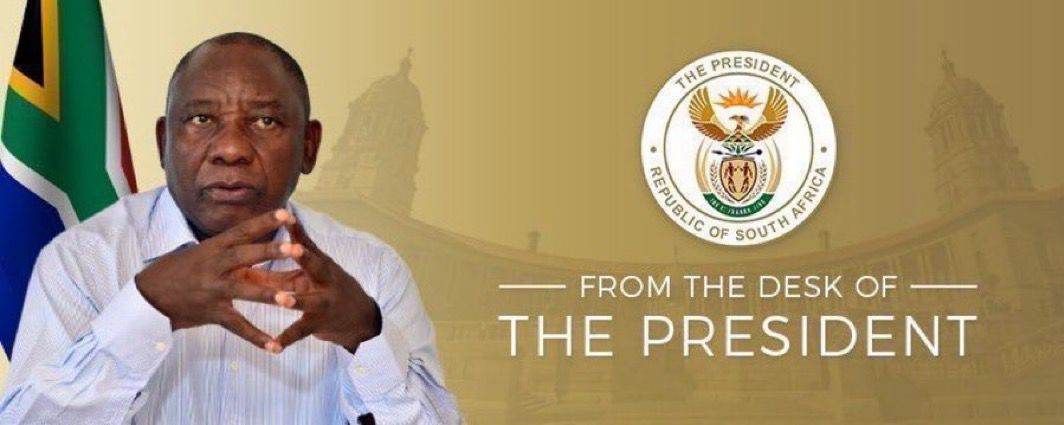 Dear Fellow South African,
Dear Fellow South African,
Last week our country participated in the ninth Tokyo International Conference on African Development (TICAD) in Japan. This is an important forum for strengthening bilateral trade and investment between Japan and African countries.
Japan is an important trading partner for South Africa in sectors such as construction, manufacturing, technology and agriculture. At the business forum held on the sidelines of TICAD9 business representatives from South Africa and Japan discussed potential areas of collaboration in clean and renewable energy, automotive components and hydrogen production.
One of the promising discussions was around the continental expansion plans by the Japanese automaker Isuzu Motors. Isuzu’s South African plant has trialled the manufacture of commercial trucks and truck bodies locally, and is engaging with Isuzu Motors Japan on its plans to become a manufacturing hub for the African market.
At a time of global trade disruptions and mounting tariff pressures, participating in forums like TICAD is key to our economic diplomacy efforts.
Economic diplomacy is an important part of our country’s foreign policy, and has become all the more critical at a time of economic headwinds and global power shifts.
South Africa’s National Interest Framework Policy Document, published in 2022, is clear that it is in the country’s national interest to forge strategic alliances that support economic partnerships and trading arrangements that favour, advance and safeguard our national interest.
In the spirit of Kwame Nkrumah’s famous words “We face neither East nor West, we face forward”, South Africa will continue to engage with partners in both the Global North and Global South. Our approach is neither partisan nor beholden, but strategic.
Our economic diplomacy is centred on securing market access, attracting investment and promoting sustainable development.
At a time when our country faces potentially high tariffs imposed by the US administration, we are continuing to put in place measures that reduce our dependence on historical markets.
South Africa continues to advocate for an international trade regime that is fair, equitable and rules-based. We are seeking a trade regime that does not render developing economies vulnerable to unilateral measures or protectionist pressures.
Likewise, our foreign policy is anchored in multilateralism, respect for sovereignty and the pursuit of alliances that advance peace, justice and our national interest.
South Africa’s foreign policy outlook is not determined by pressure exerted by outside forces, but by principle.
It is on principle that we continue to stand with the Palestinian people in their quest for statehood, recognising as we do the pain of dispossession, land theft and state-sanctioned brutality.
Even when a number of countries criticised us for doing so, and before the full extent of the brutality in Gaza was laid bare, our commitment to peace, justice and the rule of law informed our decision to take Israel to the International Court of Justice.
We continue to stand in principled solidarity with the peoples of Western Sahara in their struggle for self-determination, even when this has found us at odds with other countries, including on the African continent.
On the eve of the democratic transition in 1994, President Mandela described South Africa as being ‘situated at a particular confluence of world affairs’, and uniquely positioned to play an important role as a bridge-builder between the Global South and the developed North.
For these and other reasons, our approach to diplomacy will continue to be guided by respect for sovereignty, the pursuit of a just and equitable world order, and a firm belief that negotiation and dialogue have a key role to play in the mediation and resolution of conflict.
As a country we have lent our support to peace efforts across the continent and beyond.
These efforts include the peacebuilding process in Lesotho, contributing to the Arusha Peace Accords in Burundi and the wider Great Lakes region, and to the Revitalised Agreement to Resolve the Conflict in South Sudan. In 2022 South Africa was instrumental in the signing of the Pretoria Agreement to end the conflict in Ethiopia’s Tigray region.
South Africa is the 15th largest contributor to UN peacekeeping among all UN member states, having deployed peacekeepers to some of the continent’s most troubled regions, including Burundi, Sudan’s Darfur region and the Democratic Republic of Congo.
South Africa has also sought to play a constructive role in the conflict between Russia and Ukraine, a role that has been welcomed by both sides. In 2023 we joined a group of African leaders as part of a Ukraine-Russia peace mission. We continue to engage with Russia and Ukraine in pursuit of peace, and this past weekend I had calls with several European leaders on the latest peace effort.
These engagements all reflect our commitment to advancing a foreign policy that advances our national interest and reflects the aspirations of our constitution, the African Union’s Agenda 2063 and the UN Charter.
Respect for multilateralism and the pursuit of peace will continue to define our outlook, as will the advancement of social justice and human rights.
South Africa’s national interest will forever remain independent, not beholden to external influence. It will reflect our constitutional values and national priorities. As we continue to engage constructively with the international community, we have been consistent that this should always be on the basis of mutual respect.
With best regards,





